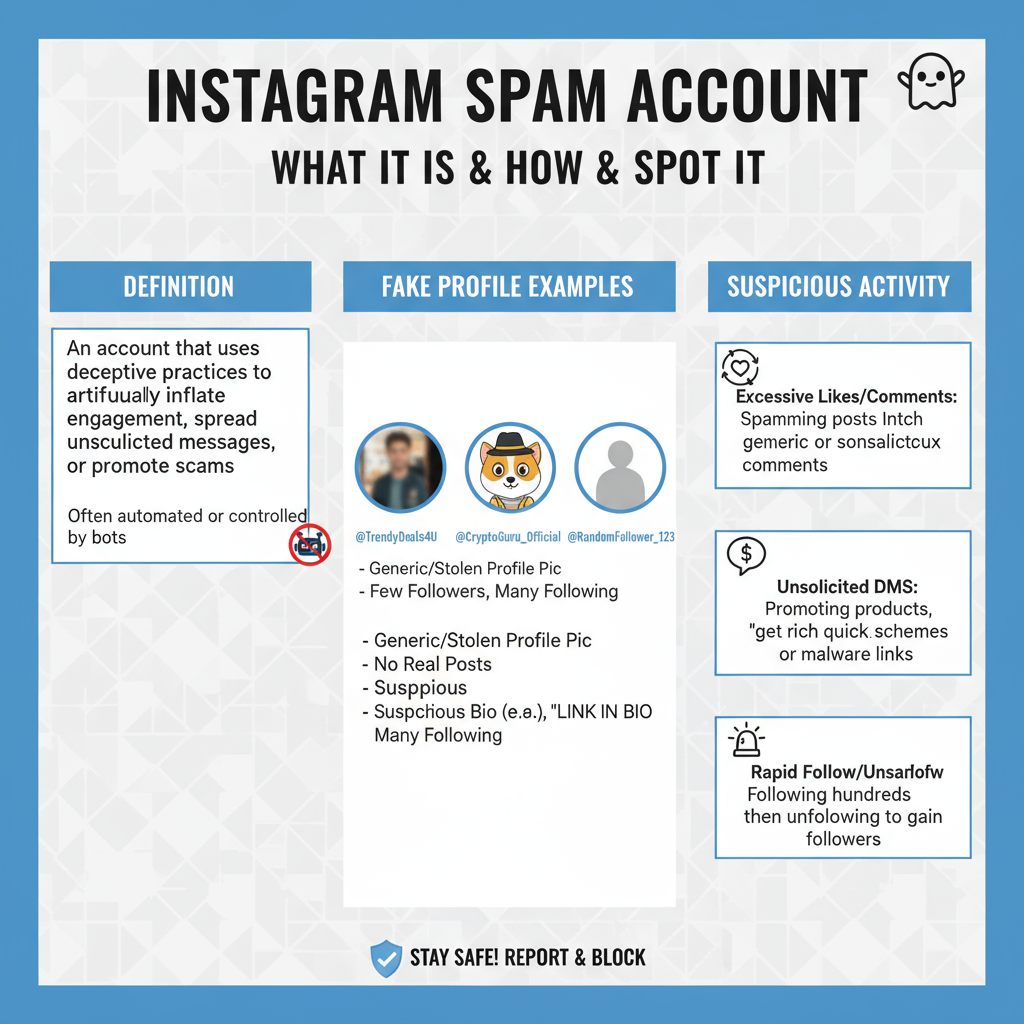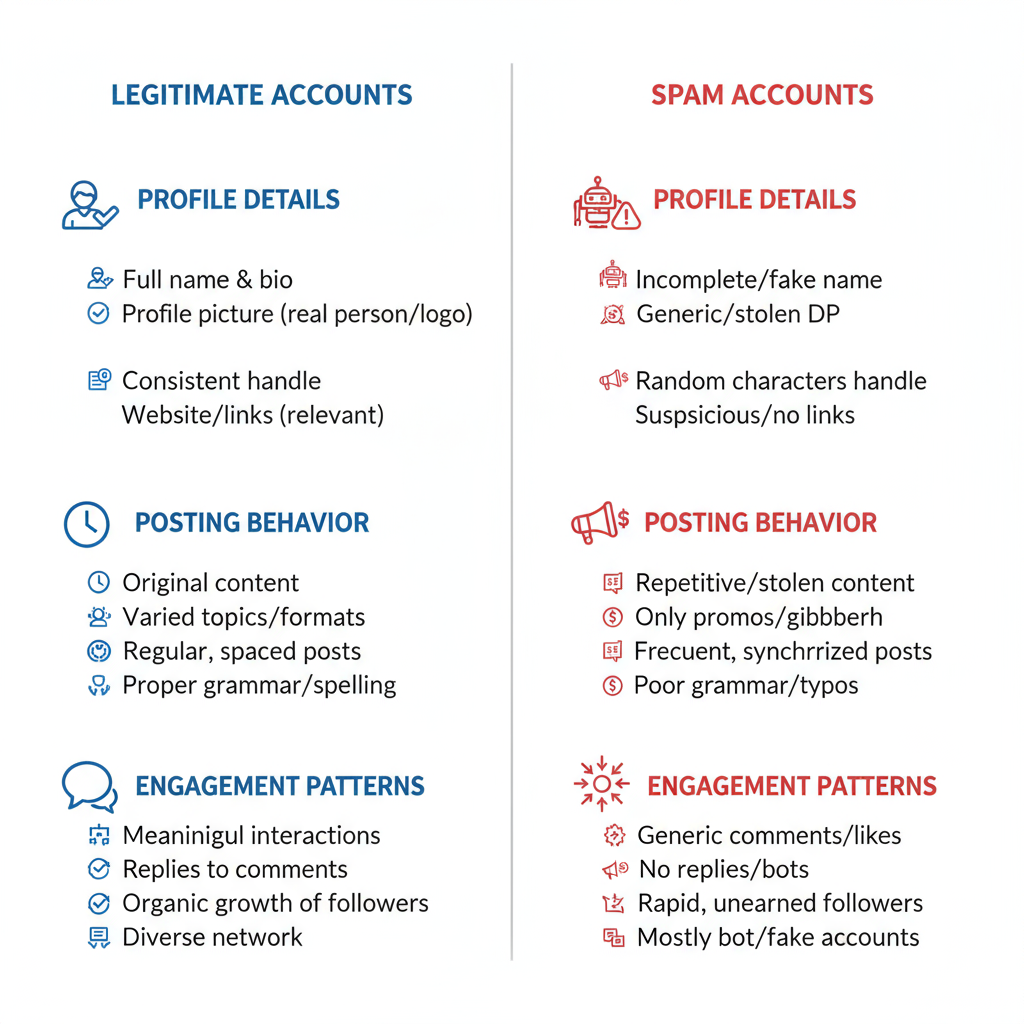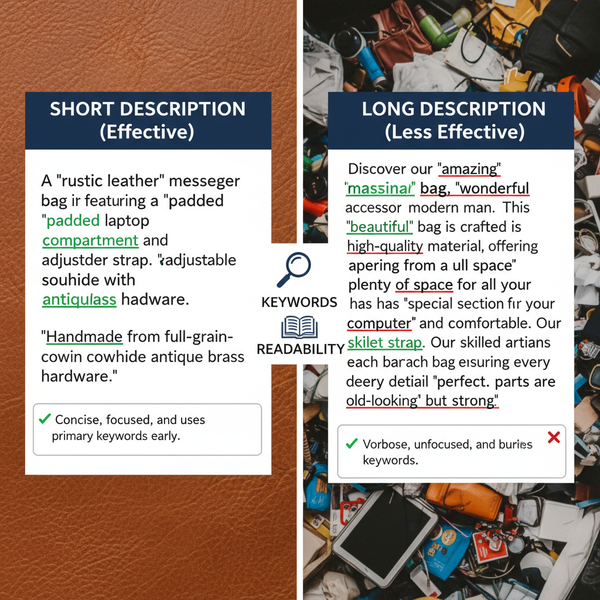What Is an Instagram Spam Account and How to Identify It
Learn how to spot Instagram spam accounts, recognize their behaviors, and protect yourself from scams, bots, and phishing on social media.

What Is an Instagram Spam Account and How to Identify It
If you’ve ever scrolled through your Instagram feed and noticed a strange account following you, leaving irrelevant comments, or liking dozens of your posts in seconds, chances are you’ve encountered a spam account. In this guide, we’ll define what an Instagram spam account is, outline the most common types and behaviors, explain how they operate, and share tips for identifying and protecting yourself from them. By learning to spot these fake profiles early, you can help maintain a safe, authentic, and scam-free Instagram experience.

---
Definition: What Constitutes an Instagram Spam Account
An Instagram spam account is a profile that engages in inauthentic or deceptive activity on the platform. Unlike legitimate users, spam accounts typically aim to:
- Promote scams or fraudulent services
- Spread malware or phishing links
- Artificially inflate engagement for commercial gain
- Harvest followers or personal data
Such accounts are often automated, run by bots, or controlled by individuals who intend to manipulate social media metrics.
---
Common Spam Behaviors on Instagram
Spam accounts can be identified by their patterns of suspicious activity. Some of the most prevalent behaviors include:
- Mass Following or Unfollowing
- Rapidly following thousands of users in hopes of getting follow-backs, then unfollowing later.
- Fake Likes and Comments
- Generating large numbers of likes on unrelated posts, often paired with generic comments like "Nice pic!" or "Check my profile."
- Irrelevant Direct Messages (DMs)
- Messages containing suspicious links, fake collaboration requests, or crypto investment schemes.
- Content Scraping
- Reposting stolen content without permission to appear active.
---
Types of Instagram Spam Accounts
Understanding the categories of spam profiles helps in dealing with them effectively.
| Type | Description | Primary Goal |
|---|---|---|
| Bots | Automated accounts interacting without human control. | Artificial engagement |
| Fake Influencers | Profiles imitating influencers, often with purchased followers and likes. | Brand deals or scams |
| Hacked Profiles | Legitimate accounts taken over by a spammer. | Spread malicious links or scams |
| Scam Accounts | Accounts targeting users with fraudulent offers. | Financial gain |
---
How Spam Accounts Are Created and Automated
Most spam accounts are not created manually. Instead, spammers use:
- Automation Bots – Scripts that like, follow, and comment automatically.
- Account Farms – Large networks of accounts created and sold in bulk.
- Hacked Accounts – Real profiles hijacked through phishing tactics.
- Username Generators – Tools creating random handles to bypass detection.

Automation tools often mimic human actions — reposting stolen content or spacing out interactions — but Instagram’s detection systems are increasingly sophisticated in spotting such patterns.
---
Signs to Identify Spam Accounts
You can often detect spam accounts by watching for these red flags:
- Random Usernames: Often with numbers, underscores, or unrelated words.
- Low-Quality or No Original Content: Few posts, often using stock images.
- Engagement Mismatch: Large follow counts but very low interaction rates.
- Generic Comments: Overused phrases that could apply anywhere.
- Aggressive Links in Bio: Offers of giveaways, crypto returns, or adult content.
---
Risks of Engaging with Spam Accounts
Interacting with spam accounts can result in:
- Privacy Threats – Your personal info could be harvested for scams.
- Exposure to Malware – Clicking bad links can compromise your device.
- Account Suspension – Instagram might penalize those engaging with spam profiles.
- Reputation Damage – Fake engagement can harm trust with real followers.
---
Instagram’s Policy on Spam
According to Instagram’s Community Guidelines, spam activities such as:
- Automated, inauthentic likes, follows, or comments
- Misleading or scam content
- Buying or selling followers
- Bot-driven interactions
...are strictly prohibited.
Measures Instagram may take include:
- Temporarily blocking certain actions
- Disabling suspicious accounts
- Removing spammy content from feeds
---
How to Report and Block Spam Accounts
To protect yourself and others:
- Open the suspicious profile.
- Tap the three dots in the top-right corner.
- Select Report → It’s spam.
- Optionally, block them to prevent further contact.
Reporting spam helps Instagram remove malicious accounts faster.
---
Best Practices to Protect Your Account
Prevent spam impact by:
- Enabling Two-Factor Authentication (2FA)
- Limiting Personal Info to avoid phishing
- Avoiding Suspicious Links in messages or bios
- Switching to Private Mode for follower control
- Regular Follower Audits to clean out fake accounts
---
Legitimate Growth vs Spam Tactics
Understanding the difference between ethical growth and spam is critical.
| Legitimate Growth | Spam Tactics |
|---|---|
| Organic followers from engaging, relevant content | Buying large batches of followers or likes |
| Meaningful conversations in comments | Generic, repetitive comments |
| Partnerships with verified or known accounts | Mass following/unfollowing strangers |
| Gradual, natural engagement growth | Unnaturally high engagement within seconds |
---

Summary and Call to Action
In this article, we answered the question “what is an Instagram spam account” by defining these profiles, detailing their common behaviors and types, explaining how they are created, outlining the risks of interacting with them, and showing practical steps for detection and reporting.
With spam tactics growing more sophisticated, staying informed is your best defense. Always verify suspicious users, avoid interacting with questionable links, and use Instagram’s built-in security tools.
Take action now: Audit your follower list, enable 2FA, and share this guide with friends to build a safer Instagram community for everyone.




